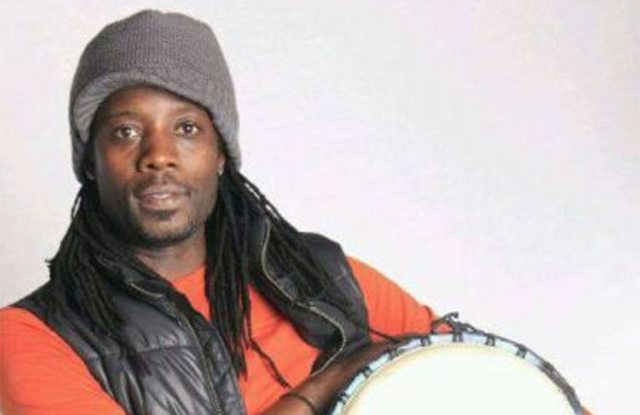
The Sunday Mail

IT would be unjust to mention local dance and leave out Tumbuka Dance Trust, a contemporary dance company that has existed for decades. Being one of the most prolific dance companies, Tumbuka has churned out talented dancers who have raised the country’s flag high on the international stage. One such dancer is the award-winning Mathias Julius, who has since traded his dancing shoes for the microphone after a 22-year-old stint on the dance arena.
The New York-based 41-year-old artiste, whose musical career started in 2004 when he recorded his first song for fun at a friend’s studio, now has four albums under his belt and is emerging to be one of the most talented reggae artistes from Zimbabwe. He recently mesmerised music lovers with deep reggae vibes at Miombo Magic Music Festival.
In an interview with The Sunday Mail Leisure, Julius spoke about his artistic career from the time he started dancing to the present day musical path. Born and bred in the low density suburbs of Tafara, Julius only developed an interest in the arts after high school when a friend invited him to try dance.
“When I was growing up, from my time at Tafara Primary School until I finished high school at Tafara High 2, I never pictured myself becoming a dancer,” said Julius.
“After high school in 1992, a friend of mine, Bawren Tavaziva, who had started dancing earlier on, invited me to come and give it a shot at dance. I became interested in the art and started taking classes for a year with the Dance Trust of Zimbabwe Youth Project and got transferred to the National Ballet Company in 1993.”
The Dance Trust of Zimbabwe is the umbrella organisation that incorporates the National Ballet Company, The Outreach Project, the Dance Foundation Course and Tumbuka.
Julius had to train through the other subsidiaries before joining the ranks of Tumbuka in his third year in the industry.
“I had to train with the youth groups first before moving up the ladder so I was with The National ballet Company from 1993 and worked my way into Tumbuka which I finally joined in 1995.”
With Tumbuka, the dancer toured the world, performing at festivals in countries that included Switzerland, Germany, France, UK, Côte d’Ivoire, South Africa, Spain and Belgium to name just a few. Having been nominated seven times for the National Arts Merit Awards (Nama) over the years, he managed to scoop the accolade in 2010 for Outstanding Male Dancer.
His dancing career with Tumbuka spanned from 1995 to 2006.
“After 2006, I was still involved with Tumbuka, not as a dancer but on Zimbabwe Dance Trust’s board of Trustees and only left in 2012. During this period, I was still choreographing and I choreographed a series of dances that Tumbuka toured with.”
Even after leaving the dance company, he choreographed another project in 2013 with the group touring Denmark.
“The last time I worked with Tumbuka was in 2013 as a choreographer for a project we did in Denmark. We were supposed to have done the project in 2006 but it stalled for six years, so I guess the group was still interested in my work.”
Although his path took him on a dancing spree for the greater part of his adulthood, Julius is penning another tale on the music scene. During his early years he had already developed an ear for Jamaican vibes and became a dancehall DJ at one point.
“I think music has always been in the background throughout my dancing career because I used to play what we called ‘madiji’ (dancehall) as a DJ when I was still in high school and we would do clashes with other DJs but I never took it up on a professional level.
“In 2004, I did my first recording at a friend’s studio in London while I was on tour with Tumbuka, just for fun but that encouraged me to do some more recordings. Out of interest I bought my own recording equipment in 2006 and started making my own music after being shown how it’s done by Flash Gordon and Take Fizzo.”
After mastering the art of recoding, Julius started making music at his home studio, which he named MMJ Studios and after a three-year effort he managed to release his first album, “Here I Come”, which was released in 2009.
“For three years I managed to record so much material and ended up releasing a 19-track album and most people who listened to it were actually shocked that I could sing like that because they had known me as a dancer. In 2011, I released my second album that was called ‘Don’t Look Back’, which featured Oliver Mtukudzi on a track called ‘Twenty Ten’.”
After moving to the UK in 2012, he released another album “Weku Tafara” in 2013, further cementing his name as a serious reggae artiste. The artiste moved to the USA last year and released his latest project “Ndini Wacho” in December. Julius has performed on both local and international platforms, touring countries that include Denmark, Zambia and the UK. In 2014, he won a Zim Achievers Award UK for Male Music Artiste of the Year.




